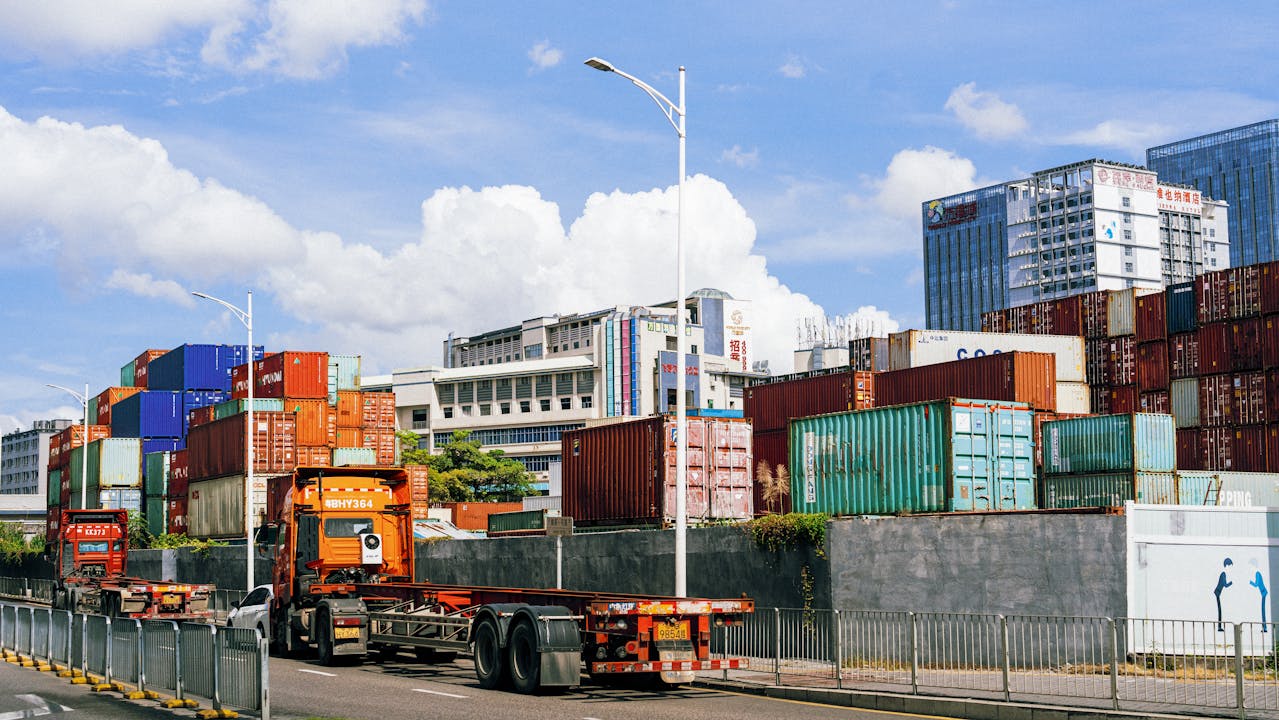世界中を移動する貨物は、いくつかの課題に直面することがあります。予期せぬ交通渋滞と同じように、遅延も避けられない可能性があります。
遅延は、専門的に計画された物流に支障をきたし、サプライチェーン全体に影響を及ぼす波及効果を引き起こす可能性があります。それで、何ができるでしょうか?
配送の遅延と、不意を突かれる予期せぬ問題に対処するための戦略について学びましょう。
配送遅延の一般的な原因
まず、荷物に遅延が発生する可能性のある一般的な理由をいくつか見てみましょう。
天気
母なる自然は予測不可能なことがありますが、私たちはそれを知りませんか?嵐や強風は、道路や鉄道、港湾インフラ、倉庫の建物などに損害を与える可能性があります。霧、猛暑、雪など、あらゆる悪天候により旅行が安全ではなくなり、配送スケジュールが遅れる可能性があります。

混雑とキャパシティ
港や交通の要所は、あまりにも多くの船やトラックが同時に入港し、荷降ろしをするため混雑する可能性があります。貨物船や車両の列は積み込み、積み下ろし、その後の輸送に遅れをもたらします。
通関
税関は複雑になる可能性があります!複雑な手順、書類上の誤り、さらには検査自体によって、貨物が国境で保留される可能性があります。
技術的な問題
老朽化した設備が故障したり、技術的な設備が故障したりする可能性があり、労働者はストライキを選択する可能性があります。貨物輸送の世界には非常に多くの可動部分があります。ある地域で問題が発生すると、すぐに他の地域にも影響が及び、輸送スケジュールが混乱します。
予期せぬ出来事
時々、何か大きなことが起こります。最近のボルチモア橋の崩落事故と同様、世界情勢、自然災害、政情不安などの予期せぬ事態は、海運業界に多大な波及効果を引き起こす可能性があります。
遅延の影響: 単なる納品の遅れ以上のもの
配送の遅れは不便ですが、問題は貨物が予定より少し遅れることよりも根深いものです。
配送の遅延により…
コストの増加
遅延は保管コストの増加、配送期限の遅延、さらには延滞料金につながる可能性があります。デマレージとは、コンテナが次の目的地に運ばれるまでに港のターミナルで費やす時間を指します。 (滞留料金と延滞料金について詳しくは、こちらを)。
傷ついた評判
納期の遅れは、新旧問わず顧客を動揺させ、プロバイダーとしての信頼を損ない、ブランドの評判に影響を与える可能性があります。
サプライチェーンの混乱
わずかな遅延のように思えるかもしれませんが、サプライチェーン全体に悪影響を与える可能性があります。生産スケジュールから在庫管理に至るまで、最終的には収益に影響するため、出荷の遅延は雪だるま式に増加する傾向があります。
遅延を最小限に抑えるためのプロアクティブな戦略
潜在的な混乱をより深く理解することで、最悪の事態に備えて(そして最善を達成して)ゲームを有利に進めることができます。
ここでは、卑劣な遅延の可能性を最小限に抑えるために役立つ、ミレニアムに裏付けられた 4 つの強力な戦略を紹介します。
予期せぬ事態に備えて計画を立てる
緊急時対応計画はあなたの味方です。私たちは企業に対し、予期せぬ中断に備えてバックアップ計画を立てることを常に推奨しています。緊急時対応計画 (ご心配なく、作成をお手伝いいたします!) がなければ、罰金や顧客の不満を招く危険があります。
信頼できるパートナーを選ぶ
信頼できる運送業者、運送業者、サプライヤーと協力してください。顧客の声をチェックし、ケーススタディをリクエストし、必要に応じて以前のクライアントと話をします。問題が発生したときに何をすべきかをパートナーに確実に知らせたいと考えています。
書類を確認してください
貨物に含まれるすべての出荷書類をもう一度見直してエラーがないか確認し、必要な書類が事前に揃っているかどうかを確認します。間違いや書類の不足により、簡単に避けられる日が発生する可能性があります。
目を離さないでください
世界のニュースを常に最新の状態に保ちます。天気予報、地政学的な出来事、地元の港の状況などに関する知識を得ることで、潜在的な混乱に直面して事前に対処し、貴重な時間を節約することができます。
遅延の管理
正直に言ってみましょう。遅延は必ず発生し、非常にイライラさせられますが、必ずしも大惨事に発展する必要はありません。配送に問題が発生した場合の対応方法は次のとおりです。
1. 状況を評価する
遅れの原因は何ですか?どれくらい続くと予想されますか?潜在的な結果は何ですか?現実的になってください。遅延の詳細を解明することは、解決策を見つけるのに役立ちます。
2. 透明性のあるコミュニケーション
サプライヤーや顧客を含むすべての関係者に定期的に最新情報を提供することで、全員に状況を常に知らせ、説明責任への取り組みを示し、信頼レベルを維持します。
3. 代替案を検討する
代替ソリューションを探す際に支援を求めて、運送業者の専門知識を活用してください。急ぎの配送、代替ルート、さまざまな輸送モードなどの代替オプションをご案内します。

4. 影響を軽減する
生産スケジュールの調整や遅延出荷の一時保管を検討することで、遅延による財務上および業務上の影響を最小限に抑えます。
5. すべての詳細を文書化する
遅延のすべての要素を記録します。原因の特定から通信のログの保存、代替解決策の書き留めから発生した追加費用まで、この情報は潜在的な保険金請求や紛争解決に非常に重要です。
遅延を迂回に変える
国際貿易において配送の遅延は避けられませんが、それがビジネスに支障をきたす必要はありません。積極的に行動し、効果的にコミュニケーションを取り、Millennium Cargo のような信頼できる貨物運送業者と提携することで、これらの課題を乗り越え、サプライ チェーンを順調に保つことができます。
サプライチェーンを動かし続ける準備はできていますか? Millennium Cargo では、予期せぬ配送上の課題に備えてください。出荷が順調に進んでいることを確認するには、今すぐお問い合わせください。

